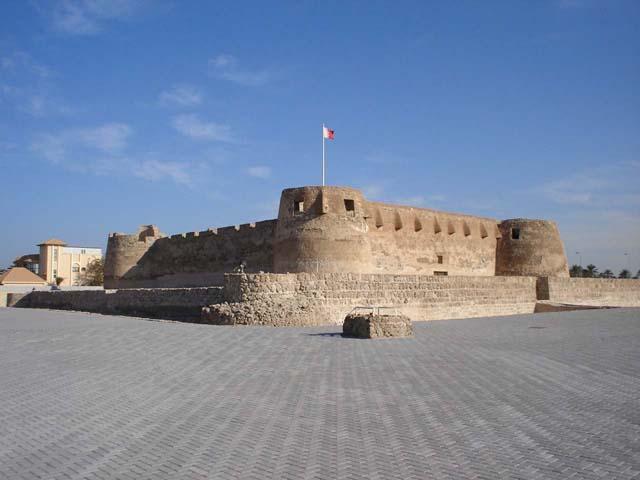Difference between revisions of "Adopting from Bahrain"
(→Who Can Adopt) |
m (→SOURCE) |
||
| (22 intermediate revisions by 2 users not shown) | |||
| Line 1: | Line 1: | ||
| − | + | {{#eimage:https://www.cia.gov/library/publications/the-world-factbook/graphics/flags/large/ba-lgflag.gif|410x579px|thumb|'''The official flag of [[Bahrain]].'''<BR/>Source: cia.gov.}} | |
| − | + | {{#eimage:https://www.cia.gov/library/publications/the-world-factbook/graphics/maps/ba-map.gif|410x579px|thumb|'''Map of [[Bahrain]].'''<BR/>Source: cia.gov.}} | |
| − | + | {{#eimage:http://upload.wikimedia.org/wikipedia/commons/1/13/AradFort.jpg|410x579px|thumb|'''Arad Fort, [[Bahrain]].'''<BR/>Source: Wikipedia.org.}} | |
| − | |||
| + | '''Notice: As of July 14, 2014, all individuals and agencies facilitating [[international]] adoptions must be in compliance with the Intercountry [[Universal Accreditation Act]].''' | ||
| − | + | The information contained on this website is for educational purposes only and is not intended to be a substitute for professional legal advice. Always seek the advice of a licensed and qualified professional. While the content of this website is frequently updated, information changes rapidly and therefore, some information may be out of date, and/or contain inaccuracies, omissions or typographical errors. | |
| − | |||
| + | =About Bahrain= | ||
| − | + | In 1783, the Sunni Al-Khalifa family took power in [[Bahrain]]. In order to secure these holdings, it entered into a series of treaties with the UK during the 19th century that made [[Bahrain]] a British protectorate. To learn more, read [[About Bahrain]]. | |
| − | |||
| − | = | + | =Hague Convention Information= |
| − | + | [[Bahrain]] is not party to the Hague Convention on Protection of Children and Co-operation in Respect of Intercountry [[Adoption]] ([http://adoption.state.gov/hague_convention/overview.php Hague Adoption Convention]). Therefore, when the Hague [[Adoption]] Convention entered into force for the United States on April 1, 2008, intercountry [[adoption]] processing for [[Bahrain]] did not change. To learn more, read about [[Bahrain and the Hague Convention]]. | |
| − | |||
| − | + | ==SOURCE== | |
| − | + | '''Intercountry [[Adoption]], Bureau of Consular Affairs. U.S. Department of State Country Information''' adoption.state.gov/country_information/country_specific_info.php?country-select=bahrain | |
| − | + | ||
| − | + | ||
| − | + | ||
| − | + | ||
| − | + | ||
| − | + | ||
| − | + | ||
| − | + | ||
| − | + | ||
| − | + | ||
| − | + | ||
| − | + | ||
| − | + | ||
| − | + | ||
| − | + | ||
| − | + | ||
| − | + | ||
| − | + | ||
| − | + | ||
| − | + | ||
| − | + | ||
| − | + | ||
| − | + | ||
| − | + | ||
| − | + | [[Category: International Adoption]] | |
Latest revision as of 01:44, 18 February 2018
Notice: As of July 14, 2014, all individuals and agencies facilitating international adoptions must be in compliance with the Intercountry Universal Accreditation Act.
The information contained on this website is for educational purposes only and is not intended to be a substitute for professional legal advice. Always seek the advice of a licensed and qualified professional. While the content of this website is frequently updated, information changes rapidly and therefore, some information may be out of date, and/or contain inaccuracies, omissions or typographical errors.
About Bahrain
In 1783, the Sunni Al-Khalifa family took power in Bahrain. In order to secure these holdings, it entered into a series of treaties with the UK during the 19th century that made Bahrain a British protectorate. To learn more, read About Bahrain.
Hague Convention Information
Bahrain is not party to the Hague Convention on Protection of Children and Co-operation in Respect of Intercountry Adoption (Hague Adoption Convention). Therefore, when the Hague Adoption Convention entered into force for the United States on April 1, 2008, intercountry adoption processing for Bahrain did not change. To learn more, read about Bahrain and the Hague Convention.
SOURCE
Intercountry Adoption, Bureau of Consular Affairs. U.S. Department of State Country Information adoption.state.gov/country_information/country_specific_info.php?country-select=bahrain


